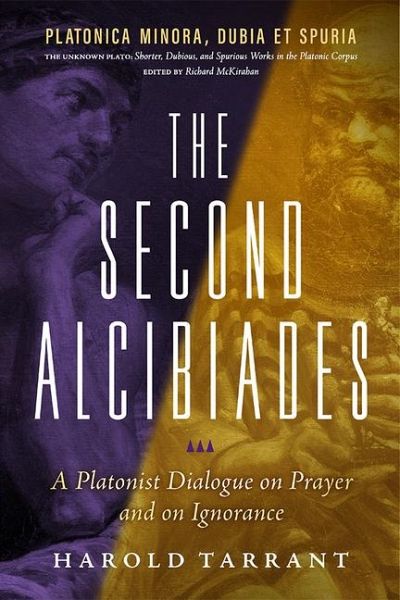
The Second Alcibiades: A Platonist Dialogue on Prayer and on Ignorance

PAYBACK Punkte
17 °P sammeln!
"This book turns a text that has been easy to ignore into an important resource for an area of ancient Greek thought that deserves more attention. Harold Tarrant's reflections on the provenance of the Second Alcibiades and its discussion of prayer are by turns suggestive and forensic, and offer fruitful provocation for us to think more about the rise of skepticism in Plato's Academy." --George Boys-Stones, Professor of Classics and Philosophy, University of Toronto "Tarrant's volume is an excellent and multifaceted guide to both the dialogue itself and its contexts, philosophical, literary and...
"This book turns a text that has been easy to ignore into an important resource for an area of ancient Greek thought that deserves more attention. Harold Tarrant's reflections on the provenance of the Second Alcibiades and its discussion of prayer are by turns suggestive and forensic, and offer fruitful provocation for us to think more about the rise of skepticism in Plato's Academy." --George Boys-Stones, Professor of Classics and Philosophy, University of Toronto "Tarrant's volume is an excellent and multifaceted guide to both the dialogue itself and its contexts, philosophical, literary and historical. The discussion of authenticity is state-of-the-art, and the engaging translation is also recommended for teaching. Everyone working on the Second Alcibiades should have this work on hand." --Dr. Alex Long, Senior Lecturer, School of Classics, University of St. Andrews



